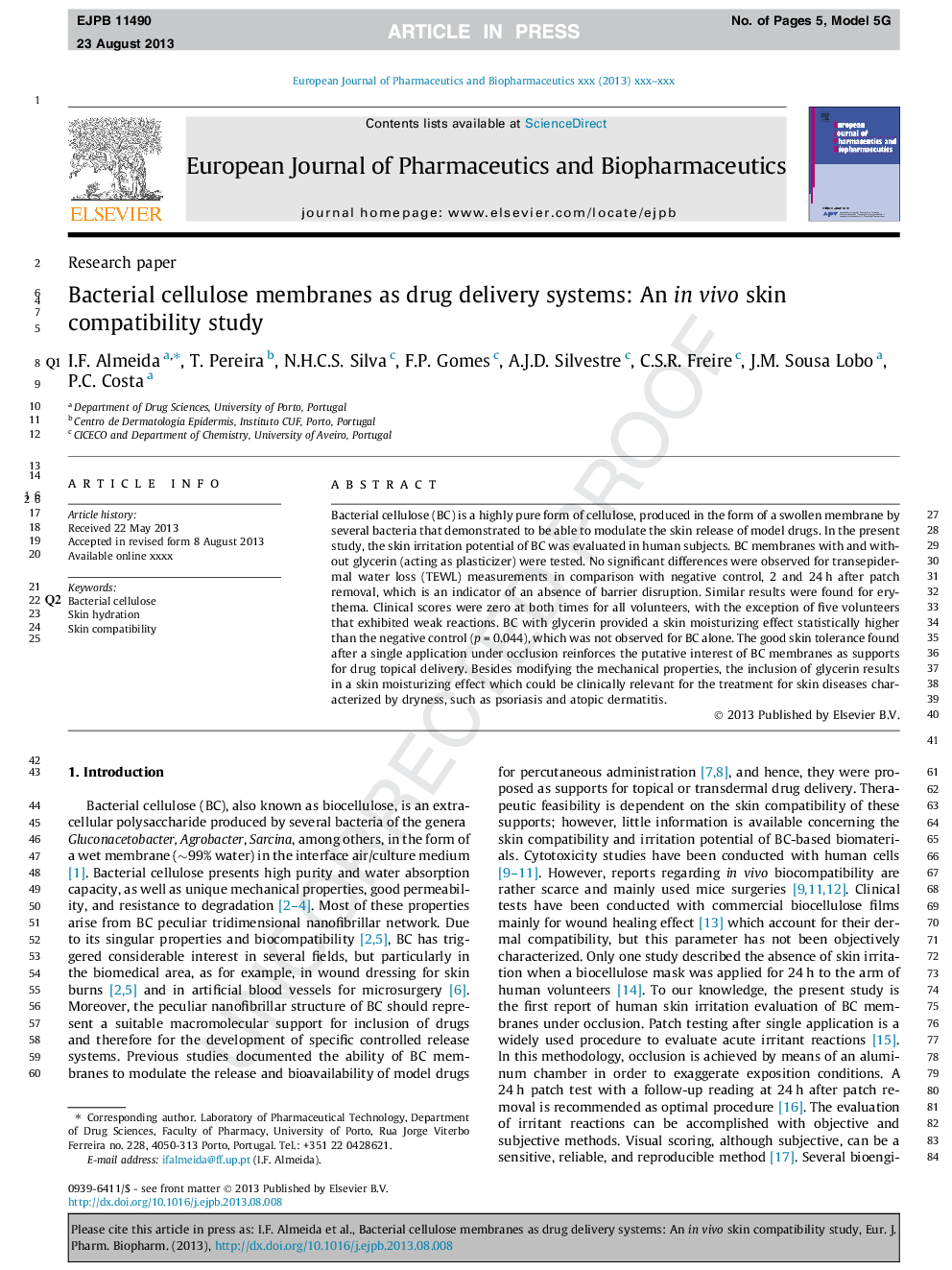| Article ID | Journal | Published Year | Pages | File Type |
|---|---|---|---|---|
| 8413961 | European Journal of Pharmaceutics and Biopharmaceutics | 2014 | 5 Pages |
Abstract
Bacterial cellulose (BC) is a highly pure form of cellulose, produced in the form of a swollen membrane by several bacteria that demonstrated to be able to modulate the skin release of model drugs. In the present study, the skin irritation potential of BC was evaluated in human subjects. BC membranes with and without glycerin (acting as plasticizer) were tested. No significant differences were observed for transepidermal water loss (TEWL) measurements in comparison with negative control, 2 and 24 h after patch removal, which is an indicator of an absence of barrier disruption. Similar results were found for erythema. Clinical scores were zero at both times for all volunteers, with the exception of five volunteers that exhibited weak reactions. BC with glycerin provided a skin moisturizing effect statistically higher than the negative control (p = 0.044), which was not observed for BC alone. The good skin tolerance found after a single application under occlusion reinforces the putative interest of BC membranes as supports for drug topical delivery. Besides modifying the mechanical properties, the inclusion of glycerin results in a skin moisturizing effect which could be clinically relevant for the treatment for skin diseases characterized by dryness, such as psoriasis and atopic dermatitis.
Related Topics
Life Sciences
Biochemistry, Genetics and Molecular Biology
Biotechnology
Authors
I.F. Almeida, T. Pereira, N.H.C.S. Silva, F.P. Gomes, A.J.D. Silvestre, C.S.R. Freire, J.M. Sousa Lobo, P.C. Costa,
